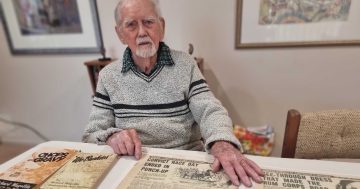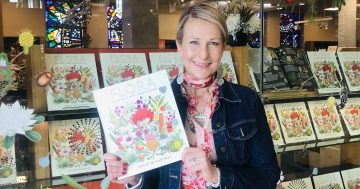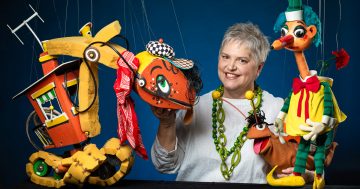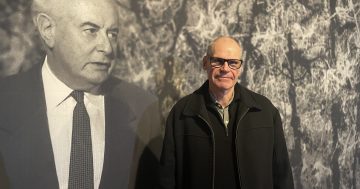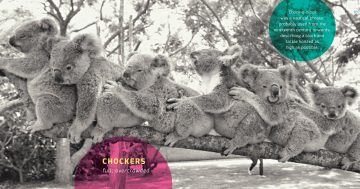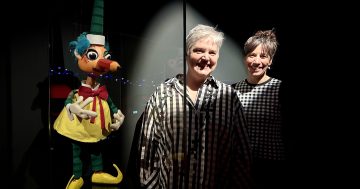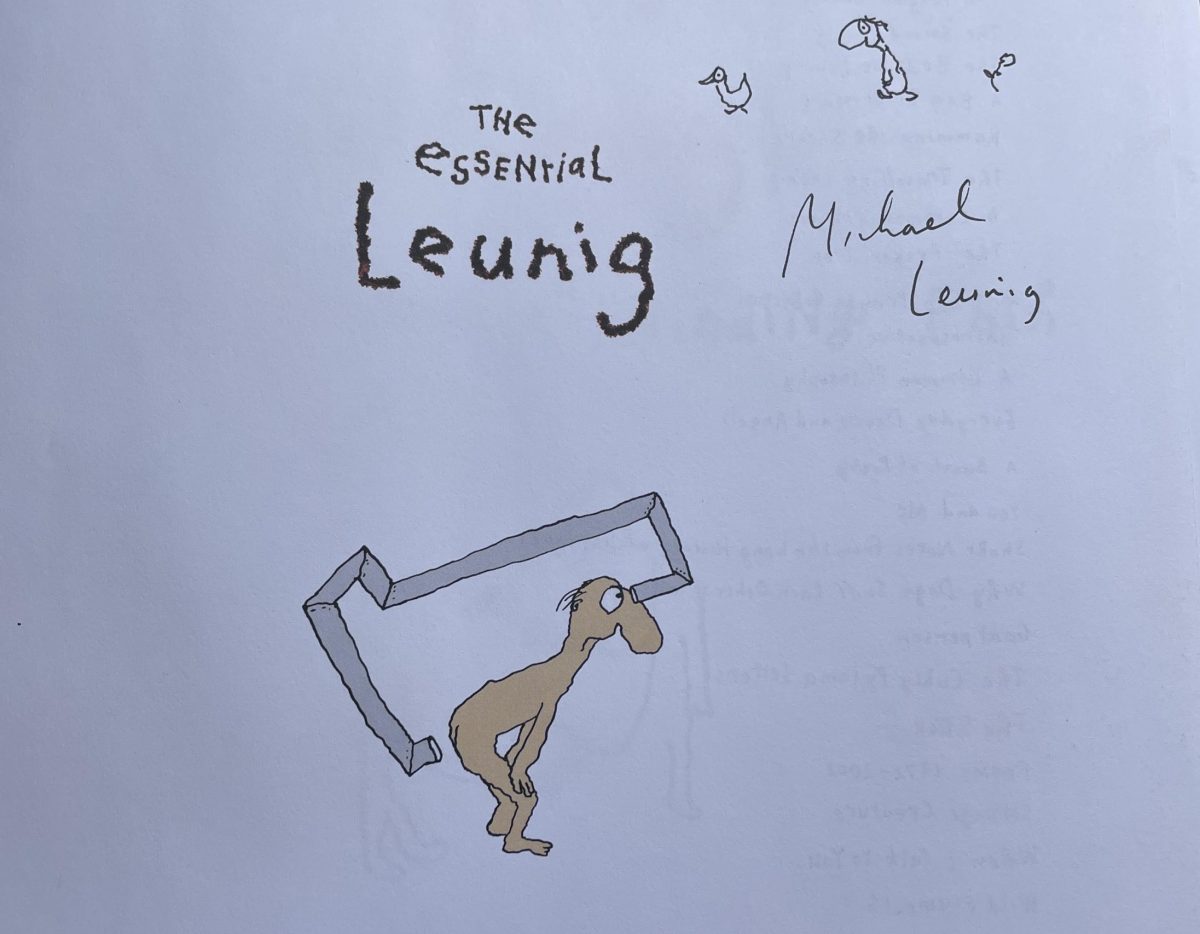
Michael Leunig was generous with his fans, signing books and sharing his passion for ducks. Photo: Sally Hopman.
The tall, grey-curly-haired fellow stood in the corner of the National Library of Australia foyer in Canberra. He was just standing there, looking straight ahead, as if he wanted to be anywhere else.
No one seemed to recognise Michael Leunig, cartoonist, writer, satirist and National Treasure, and that seemed fine with him.
It was November 2017, and Leunig had been invited to the NLA for one of its author talks. Famous writers sit on the stage, answer questions, sign books and disappear into the sunset. The venue sells lots of tickets and even more books, and everyone laughs—especially if they have read one of Leunig’s books.
Most writers would turn up with minders, publicists, and people who conjured up coffee before their VIP knew they even wanted one. But Leunig was like none of them. He turned up early, alone.
We took him into the bookshop where a desk had been prepared for him to sign some books before his talk. It was in a corner of the shop where he could have some privacy. He sat silently and started signing the pile of books.
The shop was busy but no one paid him any mind until a woman came up to me and asked, “Is that Leunig?”.
“Yes,” I replied.
“He saved my life, you know,” she said.
The woman had been nursing her ill mother and one of the things that helped them both get through it was when they’d share a giggle over one of his cartoons. “Do you think I could go over and just say thank you to him?” she asked.
I told him what she’d told me. He jumped up, embraced her as if they were old friends, and started talking.
They spoke for what seemed like ages, but it was probably only a few minutes because it was time for his speech. They hugged again, and he went downstairs to deliver his talk to the packed theatre.
Seems she wasn’t alone when it came to how Leunig touched hearts.
Apart from a general love for Mr Curly, teapots and ducks, the consensus was that his most popular cartoon was the one of the man and his son watching the sunrise on television. Behind them, through the open window, the sun was actually rising. There were also smatterings of, “I really like his cartoons, but I don’t understand a lot of them”.
Leunig said something similar in his book, Cartoons from a Winding Path, published in 2012.
He wrote: “Yes, but what does it mean? I don’t get it, what are you trying to say?” comes the persistent question over the years. The answer is that I often don’t quite get it either and don’t exactly know what I am trying to say – and doubt that I am trying to say very much in particular.
“What matters to me is that I find an unexpected sparkle in the inky muddle and mess of an emerging cartoon, some thing I have never previously seen or thought or felt. It is more important for me to love an image than understand it.”
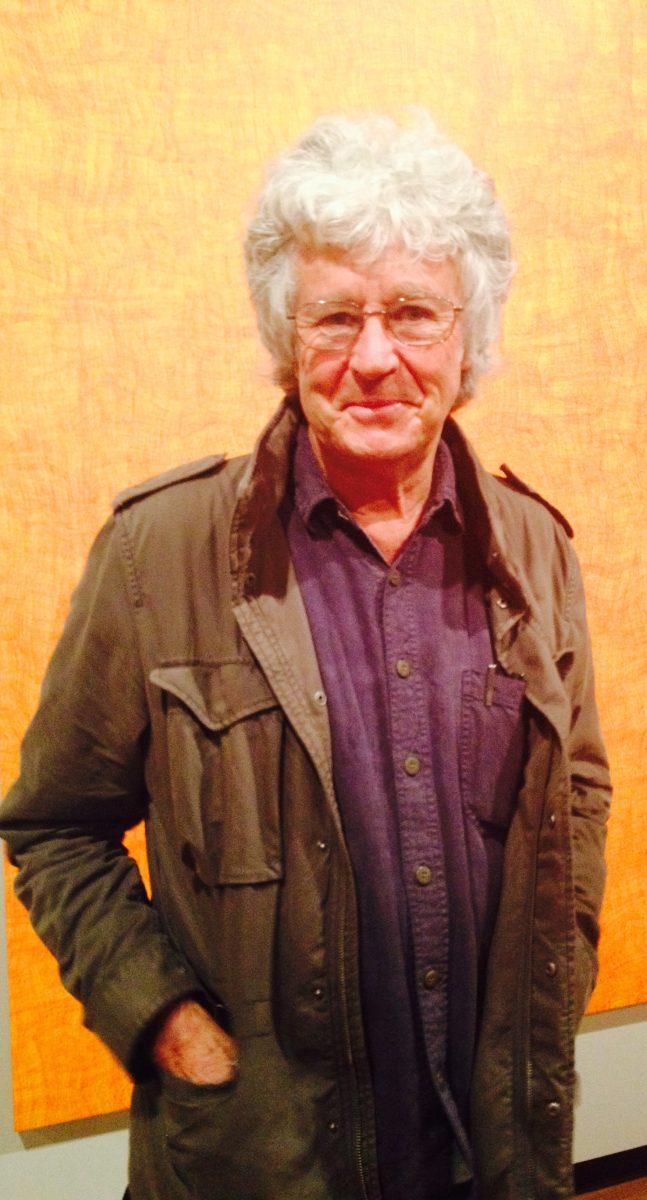
Michael Leunig at his last author talk at the National Library in Canberra in 2017. Photo: Sally Hopman.
A few years later, I experienced again the generosity of Leunig.
The Canberra Museum and Gallery had invited me to display my collection of too many snowdomes as part of its series on collectors.
I remembered that one of my favourite Leunigs was the image of Mr Curly with the caption “The World is Domed”.
We contacted Leunig just to ask if we could use the image in the show and he responded by sending a signed copy of the work. It took pride of place in the exhibition.
Leunig died on Thursday, 19 December, in Melbourne, surrounded by his family. He was 79.
“The pen has run dry, its ink no longer flowing – yet Mr Curly and his ducks will remain etched in our hearts, cherished and eternal,” his family posted on social media.












